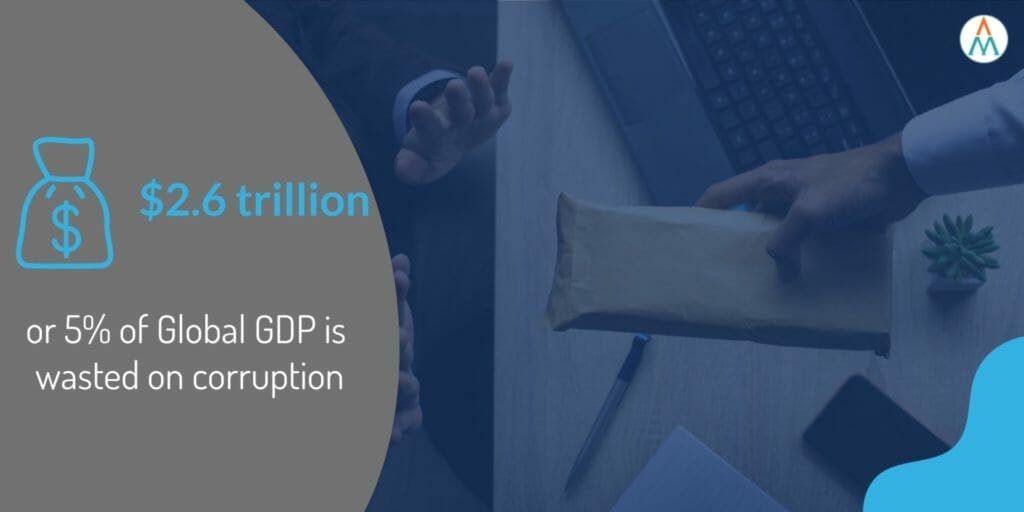Politics impacts business in different ways. In most countries, regulations and laws shape how businesses operate. However, political influence varies from country to country.
In this article, we’ll look at some of the most significant political factors affecting a business for your next PESTLE analysis.
Politics is an uncomfortable word for most businesses. It’s a word that brings to mind lobbyists and partisan politics, as well as failed policies. But, as a business owner, ignoring politics is probably the worst thing you can do.
The political environment is extremely important if you’re doing business overseas. For example, it might be hard to access the same resources as a domestic company because of the restrictions imposed on foreign businesses. In addition, the legal framework could be a lot different than in your country.
Taxation, for instance, is a big one. Businesses don’t really have a choice in the matter. They are required to pay taxes according to the tax policies of the country.

Let’s take a look at some of the key issues related to the political environment a business operates in.
List of Political factors affecting a business
Political stability
The political situation in many countries around the world is far from stable. This instability often makes it hard for businesses to operate. The political environment can make a huge difference to any business, from startups to large corporations.
Businesses are less likely to invest new capital or enter foreign markets if the political situation is tumultuous. Any time you wear the decision-maker hat, you’re risk-averse. So you don’t want to enter a foreign market where there’s political instability.
The best way to handle political volatility is to be flexible and respond quickly to changes. The World Bank’s Political stability and absence of violence/terrorism Rank is an indicator that sheds light on the historical political stability.
For example, prolonged political turmoil weakened investor and consumer confidence in Egypt and Brazil.
Labour law changes
Labour law changes can be tricky. Any change in labour laws will affect businesses. Changes are typically pushed by the government. It is usually a result of demands from the working class or a shift in public opinion. Therefore, businesses need to be aware of these changes and find ways to comply.
A change in political leadership can change government policies. In some countries, certain political parties are considered ‘Business Friendly.’ Some political parties are more workers-friendly in terms of policies. A great example is a push to raise the minimum wage in developed countries. Some other similar changes are;
- Maximum work hours and overtime changes
- Enhanced protections for disabled workers
- Trade unions related regulations
- Contract or part-time employment benefits
- Enhanced maternal and paternal rights
Europe’s political environment has changed dramatically in the last three decades. A process of democratization and a shift to a market economy followed the fall of the Soviet Union.
The European Union has agreed to a basic set of rules and principles regarding its governance. Fundamentally, these principles are supposed to protect people’s rights and make the market work for most people.
The Maastricht Treaty, the basis for the European Union, is an example of how political changes impact employment and social security policies.
Foreign trade agreements
FTAs (free trade agreements) remove trade barriers and tariffs between countries. It’s one of the best ways to boost international trade. They affect both domestic and international trade. Global business relationships have been built on these agreements for centuries.
Here are a few key benefits of FTAs,
- Price reduction due to competition
- Increase in productivity
- Economy of scale with distributed manufacturing
- Improves standard of living
You get direct access to foreign markets whether you import or export. Imports, in particular, can put local businesses under pressure.
The North American Free Trade Agreement is a free trade pact between the United States, Mexico, and Canada. North America’s business climate has been shaped by it. Over the years, there have been pros and cons to the agreement.
The treaty has created business growth for North American companies. It established a regional market and an easy way to create integrated manufacturing hubs. However, it has also led to job losses among low-wage workers since it became easier to relocate manufacturing to areas with lower labour costs.
So, businesses need to understand the implications to develop strategies that will reap the rewards of these trade policies.
Corruption
It’s still a huge problem in some parts of the world. According to the Organisation for Economic Co-operation and Development, it costs billions. Every year, more than 5% of global GDP, or US$2.6 trillion, is wasted on corruption. In addition, corruption increases business costs by up to 10%, according to the World Economic Forum.
Countries with high levels of corruption can’t provide equal opportunities for similar investments. Corrupt business practices can give big companies with deep pockets and illegal government connections an unfair advantage.
Corruption levels and perceptions vary widely across countries. In comparison, the developed world has low levels of corruption. Conversely, emerging economies in Asia, Africa, and South America tend to have higher levels of corruption.
Since Canada adopted the Corruption of Foreign Public Officials Act (CFPOA) in 1998, bribing foreign public officials is a crime. Despite many countries criminalizing bribery, some regions consider it a normal part of doing business. Consider the ramifications of corruption and bribery in your PESTLE analysis, depending on where you do business.
Tariffs
Tariffs are meant to keep local businesses protected from foreign competition. Basically, you’re making consumers buy products within a country’s borders. In some cases, tariffs are used as a form of protectionism. Governments do that by placing limitations on imports through taxes or other trade barriers.
Recent trade issues between the US and China have made tariffs a hot topic. When goods arrive at the border, customs officers charge tariffs. In most cases, it is paid by the buyer. There are several types of tariffs.
A unit tariff is a set dollar amount on one item, like a car. Tariffs are expressed in terms of $X per unit. Let’s say $1,500 per imported car.
Ad valorem tariffs are based on the value of imported goods. For example, 25% tariffs on imported soybeans. It’s the most common tariff on agricultural products.
If applicable, you’ll have to figure out the impact of tariffs on raw materials and assembly parts. For example, it can reduce the available suppliers if imported products are overly expensive than similar domestic products.
- Prices can go up due to low supplies and competition.
- Product quality might stagnate with reduced competition.
- It can create tensions among different countries leading to more restrictions and tariffs.
Consumer Protection
Consumer protection laws are there to protect consumers from poor-quality products and bad business practices. Laws about consumer protection ensure that customers get a quality product at fair prices without risking their health or finances.
These laws affect businesses, including raising costs. These laws may seem burdensome to some businesses, but they are essential to preventing consumer fraud.
These laws include items such as;
- Food safety standards
- Product warranties and returns
- Repairs and replacement
- Deliveries
- Information disclosure regulations
- Prohibit unfair marketing
- Promote responsible consumer behaviour
When a business complies with these consumer protections, it will avoid legal problems or fines. Compliance with consumer protection laws is necessary. Also, breaking these rules could seriously hurt your brand’s reputation.
Taxes
Taxes play a big part in business and investor decisions. Countries need to offer the best tax rates to be competitive. It has a significant impact on economic growth, employment rates, and entrepreneurship.
Foreign investment is thwarted by taxes that are too high or complicated. It drives out domestic investments by making them less profitable than elsewhere in the global market. For small businesses, complicated taxes mean more tax lawyer expenses.
Recent studies show that a 1% increase in corporate income tax results in a 3% fall in output. Also, a 1% reduction in corporate income tax results in 0.1% growth in GDP.
These are direct consequences of higher taxes;
- Companies have to hire experts to make sense of tax law and avoid overpaying or underpaying. This raises administrative costs for companies.
- Corporate and shareholder taxes cut economic growth, and capital accumulation slows down.
- FDI flows from high-tax countries to low-tax countries because of corporate taxes.
Bureaucracy
Many countries deal with corruption. Often, it’s caused by poor governance, a lack of transparency, a weak rule of law, and weak public institutions. However, some governments are trying to cut corruption in public services and administrative procedures.
The World Bank published a study on governance, which found that the more bureaucracy, the more corruption. There’s a positive correlation between bureaucracy and corruption. The corrupt procedures include bribery, embezzlement, theft of public funds, money laundering, conflict of interest, false reporting, nepotism, cronyism, patronage, and graft.

